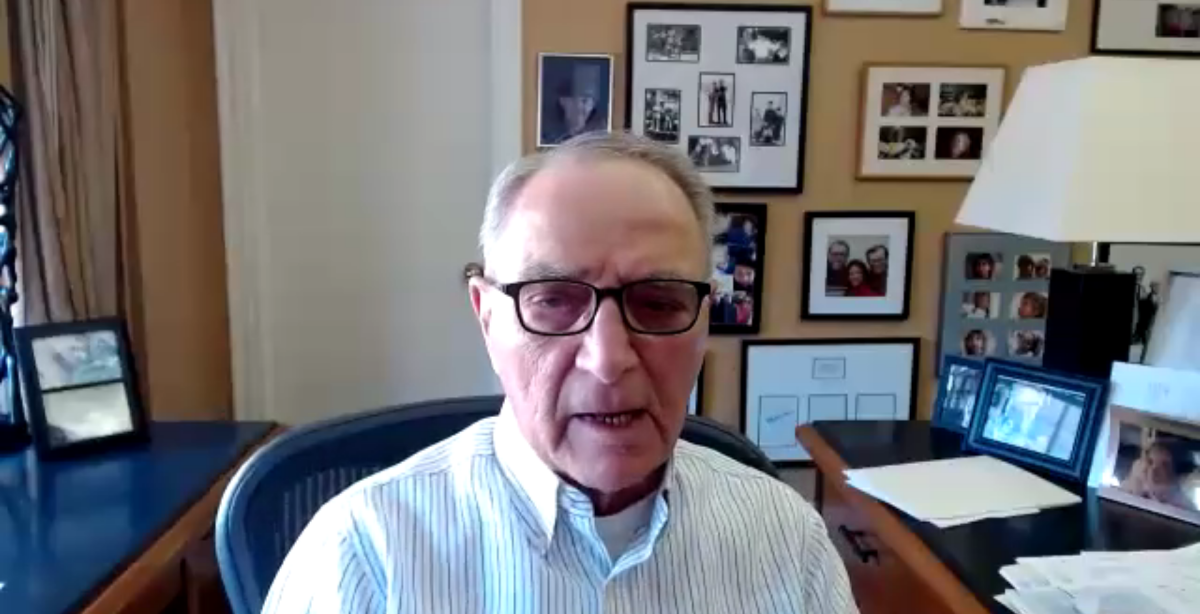The future of work in the aftermath of the COVID-19 pandemic was the core discussion in the latest installment of Larry Zicklin’s webinar series on Sept. 10.
Zicklin started the webinar by asking Dan Clivner — member of Sidely Austin LLP’s executive committee and managing partner of the Los Angeles regional offices— how many people he is responsible for and what Sidley Austin does with remote work. Regarding the 480 lawyers he oversees globally, 280 of which he is responsible for, Clivner said the firm expects lawyers to be in the office “a majority of the work week” and that expectations vary depending on the role.
Zicklin asked if expectations were being met, to which Clivner responded that two-thirds of staff meet them. He pointed out that it is “hard to measure precisely” because the firm cannot tell if someone is involved in court, on business trips or on vacation.
Stephen Dilchert — assistant professor of management at Baruch College — added that Sidley Austin is “ahead of the curve” in getting people back into the office. However, geographically, there is variability in office attendance, with the West Coast having the lowest, New York being a middle ground and large Southern states having the highest attendance rates.
Clivner agreed with Dilchert, stating that the people in the Texas offices are routinely in the office higher. He added that the challenge in getting people back is arguing against the record productivity during the pandemic and answering, “Why not just work remotely?”
This prompted Zicklin to ask how he would answer that question. Clivner shared that he uses a mnemonic called the four C’s — culture, community, coaching and collaboration — and explains how remote work negatively impacts all elements.
“I think it’s the four C’s; culture is lost when you’re remote, community [is lost], coaching isn’t as effective in the view of our firm when you’re remote and finally collaboration,” he said. “It’s easier to collaborate [in person],” .
Additionally, he emphasized the need for more engagement, stating that if there is no connection while in the office, then collaboration does not work. Dilchert then went on to explain the benefits of remote work to certain employees but cited that 76% of senior executives reported feeling burnt out with managing remote teams and said that “there’s two sides of the equation.”
When asked if the job market loosening up will make employees more flexible, both speakers agreed that it would. They estimated that the future of work will be a “hybrid model,” where if demand for jobs is low, people will be more flexible to employers’ needs, and when it is high, people will negotiate their schedules and benefits.
Zicklin asked Clivner if artificial intelligence will replace the routine things first and second-year associates do and, if so, what experiences they will get. Clivner said AI is a tool, and over time, it will increase expectations that lawyers will “do more significant work quicker.”
To close the webinar, an attendee asked the speakers what advice they would give undergraduate students preparing for entry-level positions. Dilchert answered that students should focus on the skills that will follow them “their entire life,” such as communication, writing and leadership skills. Clivner added that students can grow by watching others and must decide between working in-person or remotely, but “in either case, observe others.”
“I’m not the same person I was when I went to Baruch College or graduated Baruch College,” Clivner said in his closing remarks. “Although I want to just give a shoutout and commercial here, I thought I had a fantastic education and it set me up for success as a lawyer, but as a person so I’m a proud alum.”








